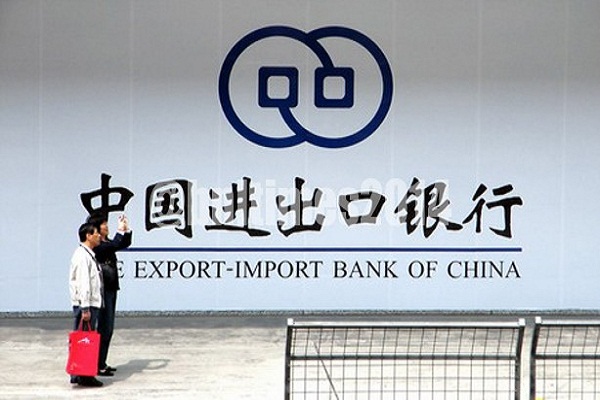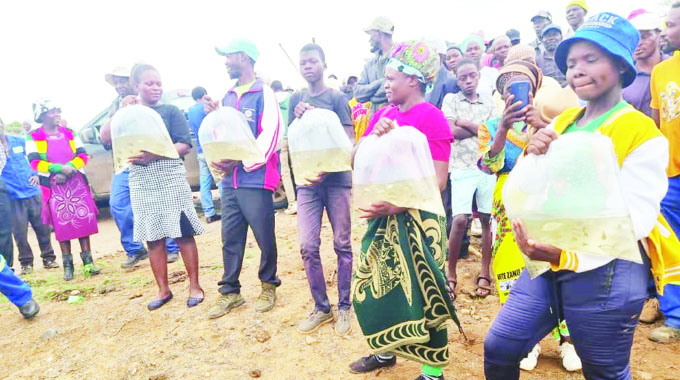China Eximbank: Bridging Africa’s energy gap

Lovemore Chikova in Beijing, China
The Export-Import Bank of China has stood out in recent years as one of the major drivers of cooperation between the Asian economic giant and African countries. The bank, also known as China Eximbank, has the provision of finance to support China’s partnership with Africa as one of its priorities. Almost all the biggest projects being undertaken in African countries are backed by finance from the China Eximbank.
These range from power transmission and transformation stations, railway and road networks, bridges to Special Economic Zones. Hospitals, ports, government office buildings, telecommunication facilities and schools have also been established with financial backing from the China Eximbank.
Statistics released by the bank last week in Beijing show that it has supported more than 1 000 projects in over 50 African countries, with a total of more than $66 billion being invested.
At the end of June this year, China Eximbank was supporting 600 projects that were running in Africa, with a total outstanding loan balance of over $45 billion, according to officials. The projects being supported by the bank are at the forefront of transforming African countries towards their quest for total industrialisation.
It is clear that China Eximbank has located its role in helping Africa push that goal forward. The African Union is spearheading a project named Agenda 2063 which envisages that all the 54 countries will be enjoying some form of industrialisation by that year.
China Eximbank has been playing a major role in funding, not only these energy projects, but many others, especially in countries along the Belt and Road Initiative (BRI) in various continents across the world.
Without funding anchored by banks such as China Eximbank, the BRI programme cannot realise its full potential because it involves lots of funding for various projects, especially those in infrastructure because they play an important role in connecting various countries.
Apart from infrastructure, the China Eximbank has been funding projects in countries along the BRI in areas such as transport, railways, airports and water reticulation. The funding in BRI countries by the China Eximbank has created employment, opened new frontiers in various sectors and increased tax collections as the business conditions improved.
The BRI development initiative is a new concept introduced by China in 2013 meant to uplift lives of people in different parts of the world through cooperation on various areas.
The concept follows the traditional trading routes that were used by China in ancient times to do business with the outside world, and many countries in various continents along those routes have benefited.
China Eximbank officials believe they have adopted a strategy that places them strategically as a major driving force for Africa’s development and for all round cooperation between China and the continent.
These measures include combining preferential facilities with commercial loans, export credit with import credit, buyer’s credit with suppliers’ credit and US dollar loans with RMB loans. The China Eximbank was founded in 1994 with a mandate to promote China’s external relations and international economic cooperation by providing financial services.
From that humble beginning, the bank has grown to become the world’s largest official export credit agency by size. It has carried out projects in nearly 200 countries and regions of the world. But the bank’s commitment to Africa remains unparalleled. The bank’s vice president Mr Yuan Xingyong told African journalists based in Beijing last week how his bank views Africa and the business opportunities it offers.
Mr Yuan noted that Africa has vast potential to develop rapidly as evidenced by the remarkable achievements it has made. What is also of equal importance is that relations between China and Africa are built on a win-win basis, mutual respect and equality.
This policy by the Asian country towards other countries has ensured that institutions such as the China Eximbank find their work easier when dealing with a continent like Africa. In fact, a new world order in terms of international financing is emerging and is being led by institutions such as the China Eximbank.
This new order promotes South-South cooperation and is fair to developing countries which have been struggling to access finances from Western institutions. The result will be a balance in world development and a world economy in which previously deprived countries have a major stake.
Mr Yuan said China Eximbank has been committed to that cause since its formation. “As a professional financial institution dedicated to promoting international economic cooperation, China Eximbank, since its founding in 1994, has been committed to promoting China-Africa cooperation in the economic, trade and investment fields,” he said.
“The bank has made significant contribution in supporting the ‘Going global’ of Chinese goods and capital and the ‘Bringing in’ of African products. “Our bank has played a major role in supporting Africa’s development and all-round cooperation between China and Africa.”
This support is in line with the expected outcomes of the Forum for China-Africa Cooperation (Focac) which seeks to enhance economic collaboration between the two sides. At the Focac summit in South Africa last year, Chinese President Xi Jinping outlined a 10-point plan to push forward economic cooperation with Africa.
The 10-point plan focuses on industrialisation, infrastructure, financial services, agriculture modernisation, trade and investment facilitation, poverty reduction and public welfare, green development, public health, people to people exchanges and peace and security. The plan is backed by a $60 billion facility announced by President Xi at the Johannesburg summit.
China Eximbank’s facilities and concessionary loan fit quite well into this quest by China to ensure the complete transformation of African countries. For instance, the financial backing from the bank has covered 3 000 kilometres of railway construction and more than 5 000 kilometres of highway on the continent.
“These projects have responded to the most urgent needs in Africa’s socio-economic development, enhanced local capacity for independent development, attained good social benefit and economic returns, and they are, therefore, well received by local governments and people,” said Mr Yuan.
The projects which are being supported by China Eximbank are of high quality and value and strive to bring new technologies on the shores of Africa. Zimbabwe is one of the countries that have benefited immensely from concessionary loans being extended by the China Eximbank.
Almost all of the country’s major projects, some already on-going while others are still to be implemented, have been backed by the Chinese bank. Zimbabwe has signed a $319 million deal with China Eximbank for the expansion of the Kariba South Power Station, which will include the addition of two power generation plants.
The expansion is expected to solve the energy crisis faced by the country, which has been a hindrance to its ambitions of industrialisation. The expansion work will be undertaken by Sinohydro, a Chinese firm which won the tender.
When complete, the power station will produce an additional 300 megawatts to complement the 745MW it is generating now. Zimbabwe produces 1 300MW from all its power stations against a peak demand 2 200MW. China Eximbank also funds the expansion of Hwange Thermal Power Station for more than $1 billion. The project will ensure that the thermal power station adds 600MW to its generation capacity.
In the telecommunications sector, State-owned fixed phone operator TelOne has agreed to a $98 million loan facility from China Eximbank to finance its network modernisation programme. China Eximbank also provided $150 million for the upgrading of Victoria Falls International Airport, which will boost its capacity to handle more traffic. The upgrading has since been completed by China Jiangsu International Economic and Technical Cooperation Group and more direct flights are expected to Zimbabwe’s premier tourism destination.
China Eximbank has provided a $144 million loan facility for the rehabilitation of Harare’s water works. Morton Jaffray and Prince Edward water treatment plants and Crowborough and Firle sewage plants will benefit from the loan facility. Zimbabwe has also received $77 million for health development from the same bank.
There are many other projects in Zimbabwe that are being financed by the China Eximbank. According to a study published by the International Energy Agency in July, Chinese firms can be credited for 30 percent of new electricity generation capacity in sub-Saharan Africa.
The firms have managed to make such an achievement due to the financial backing they receive from China Eximbank. Other big projects include the Adama Wind Power Construction project in Ethiopia, the Addis Ababa-Djibouti Railway and a $1,2 billion natural gas pipeline in Tanzania.







Comments